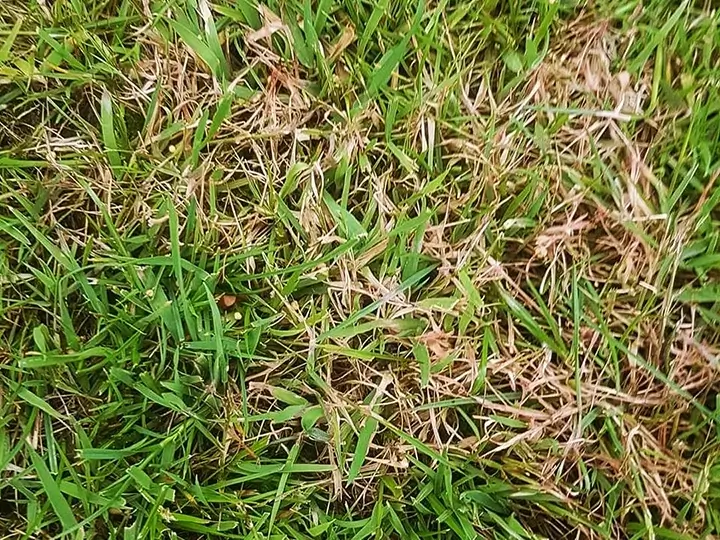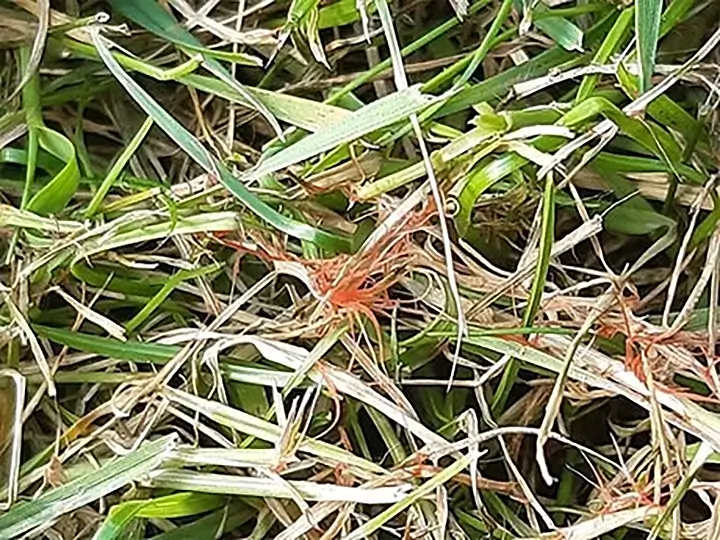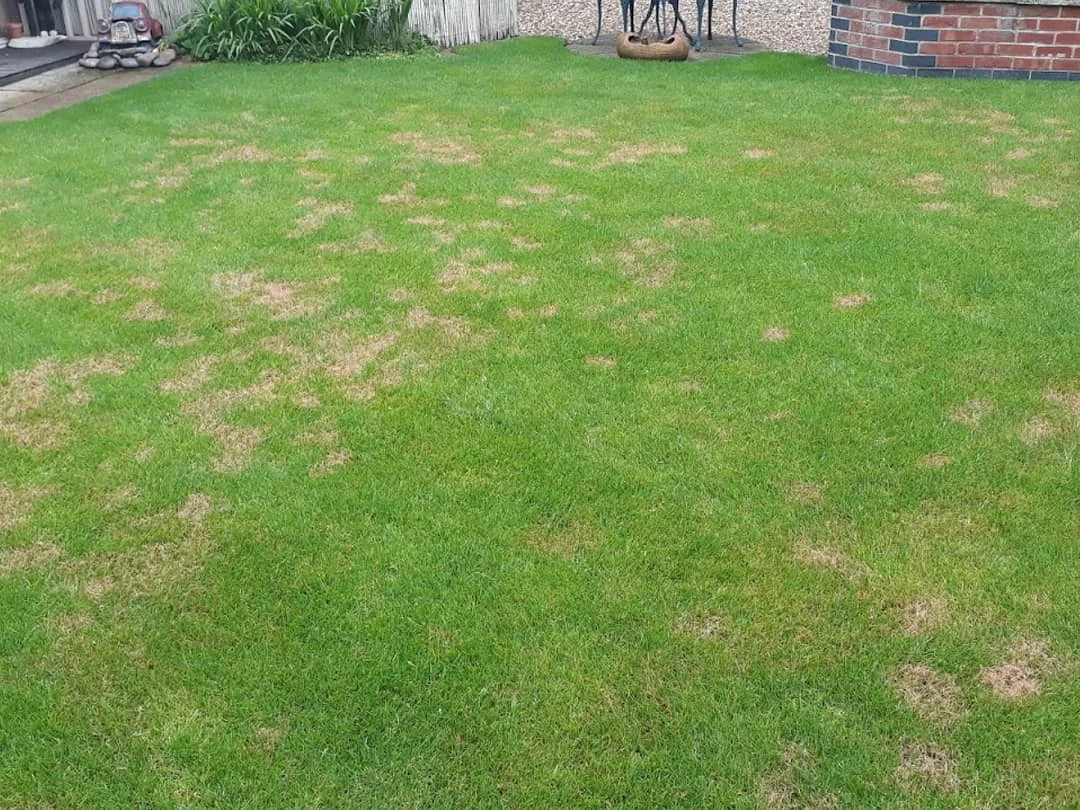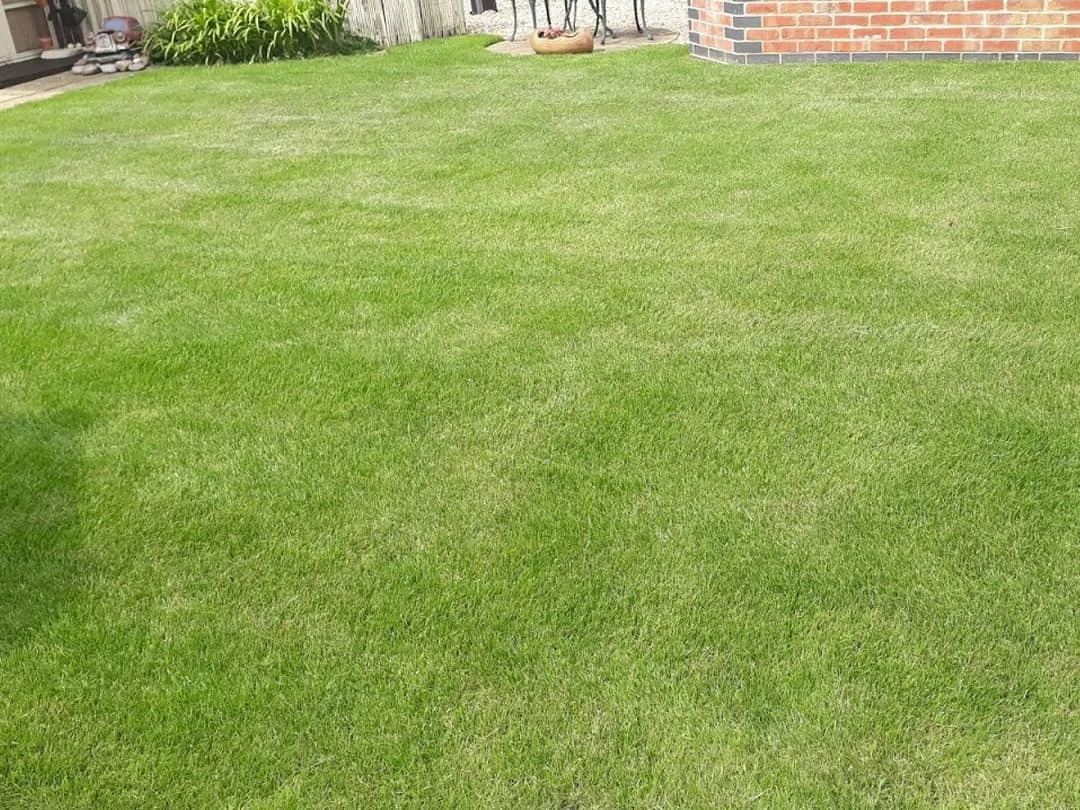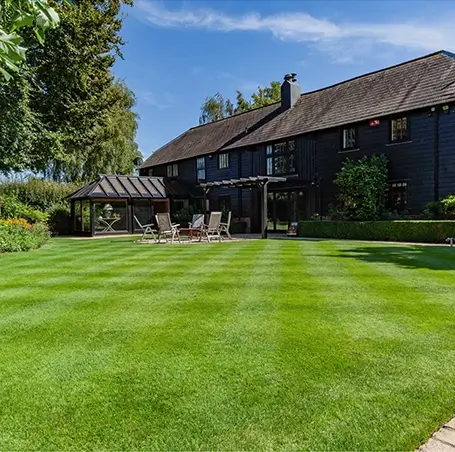Red Thread
Last Updated: 16/05/2025
One of the most common diseases encountered on domestic lawns; Red thread is caused by fungus in the soil.
Brown patches appear on affected lawns, sometimes with a red tinge, which then become lighter. On close inspection, very fine red threads can be seen on the leaves, which give the disease its name. This is the early stage of the disease; once it matures it produces pink ‘candy floss’ type clumps that will produce spores. These can be spread by shoes, lawn mowers, water and other items moved around the grass.
The good news is that apart from being a sight for sore eyes, Red Thread can very rarely ever kill grass. However, if left to develop, the patches may increase in size and eventually join together and transform a healthy green lawn into a brown patchy lawn.
The types of grass which are most affected by Red Thread are fine-bladed leaf species such as fescues and bentgrass, but all grass species can be affected.
When does Red Thread develop?
Red Thread can occur at any time of the year and can be caused by several conditions; however, it most commonly occurs from late spring, throughout summer and into early autumn.
Jan |
Feb |
Mar |
Apr |
May |
Jun |
Jul |
Aug |
Sep |
Oct |
Nov |
Dec |
|
|
|
|
|
|
|
|
|
|
|
|
What conditions cause Red Thread?
The disease typically becomes most visible when the grass is stressed, and humid conditions occur. Combine this with not cutting the lawn properly (which in turn stresses the lawn) and then over-watering in humid weather, and you have a perfect recipe for Red Thread to take control.
Newly laid turf? Be on red alert!
One of reasons why it develops can be as a result of nutrient deficiency, especially when homeowners have laid new turf. These lawns tend to have a higher proportion of fine-leaved grasses in them, and being watered regularly, the grass becomes deficient of nutrients. Our turf experts recommend applying a feed almost as soon as new turf has been laid which is high in a nutrient that is beneficial for root development. This makes the plant much stronger overall, increasing its resistance to Red Thread and other turf diseases.
How to prevent Red Thread
To help prevent Red Thread occurring, you should not cut your lawn too short (cut regular and little instead), and not let the lawn dry out. Water the lawn regularly for short periods, preferably in the morning as the water will not evaporate as quickly, and therefore the grass plant will utilise it better. A wetting agent treatment will help the lawn utilise watering better and ensure it gets to the rootzone too.
Lawn Master can easily help prevent most strains of Red Thread with a fungicide treatment. However, established Red Thread are much harder to cure due to the amount of strains that now exist. Therefore, If you think Red Thread might be a problem in your lawn, contact your local Lawn Master outlet as soon as possible. Our turf professionals have identified and treated Red Thread on golf courses and sports pitches, and they know that prevention is better than cure.
Lawn Master provides lawn disease control programmes to eliminate diseases including Red Thread from your lawn.
Find Your Local Lawn Master Expert
For Further Information
Learn more about lawn disease control.
Learn more about wetting agents.
Written by Jonathan Novis, Lawn Care Operative & Lawn Master Franchise Owner
View Profile
Jonathan is a qualified turf professional with over 15 years of experience. Before joining Lawn Master, Jonathan worked as a Greenkeeper at numerous golf courses, including Battle Golf Club and Rye Golf Club. Jonathan is based in Ashford and offers lawn care services in East Sussex & Ashford.

